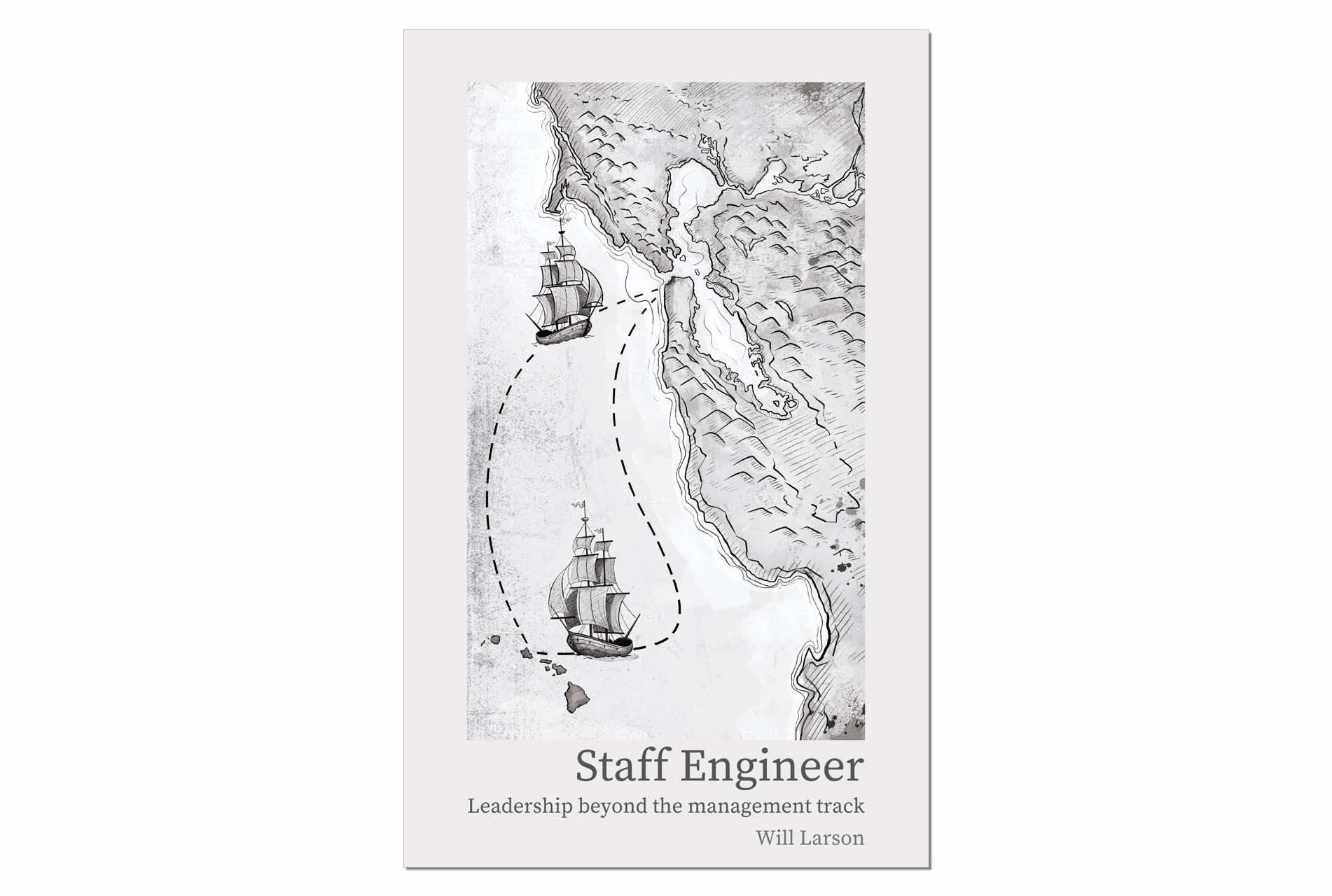Interviewing for Staff-plus roles
When you decide to interview for a Senior engineer role, you roughly know what to expect. You’ll refresh your resume, work through Cracking the Coding Interview, and do some research on the company to prepare questions. When you go into the interview, you know it’s going to be five-ish interviews composed of a few programming exercises, something about technical architecture, and some cultural, behavioral, or career questions.
It would be amazing if you could start a Staff-plus interview process with similarly clear expectations, but most companies struggle with their Staff-plus interview loops. It might be the same exact interview you’d get for a Senior engineer role. It might be an engineering manager loop with a programming question added. It might be something else entirely.
Getting comfortable navigating ambiguity is a core part of the Staff-plus role, so a particularly optimistic person might view the state of Staff-plus interviewing as a good opportunity to demonstrate your skills. If you’re less optimistic, you might find it a bit frustrating, but a bit of preparation can go a long way in making these interviews more predictable.
Draw your lines
The engineering leadership phase of your career may last twenty years, but if you think of that in terms of roles, how you spend that time will likely come down to four or five pivotal decisions. Each of those decisions is a scarce resource, and you should allocate them deliberately. Before jumping into an interview process, spend some time refining your criteria for the kinds of processes you’re willing to participate in, as well as reflecting on the right company for you.
There are certain signals you’ll get during an interview loop that indicate that the company doesn’t quite know how to interview Staff-plus engineers. Because most companies have mediocre Staff-plus interview processes, you shouldn’t automatically opt-out of poorly run processes, but you should consider which of those signals represent a line you’re unwilling to cross.
One line that many folks in Staff-plus roles draw is they’re unwilling to practice interview programming. This often means they are slower or make more mistakes in the sort of algorithmic questions that many companies use to evaluate early career candidates. Folks who don’t practice take that stance because they’ve decided that a company who cares about fast programming is likely to misuse its Staff-plus engineer. Is that a line you want to draw? Maybe, decide for yourself.
Debug the process
After you’ve drawn your lines, next, you’ll need to figure out the actual interview process used at the company you’re interviewing with. It might feel like asking these questions could push the company to reconsider your candidacy, but it’s always reasonable to ask the recruiting team and hiring manager for more details about your interview process. At the Staff-plus level, it’s almost a point of concern if you don’t ask for more details. Companies want you to succeed, and understanding the process is an essential part of preparation.
The three most important things to understand before you start interviewing are:
- What are the interview formats, including what are they evaluating for?
- Do any of the interviews require specific preparation?
- Who are the interviewers?
Once you’ve answered those, then it’s just a matter of preparation. Take notes about how you want to approach the different kinds of questions. Prepare materials for any presentation interviews. Briefly research the interviewers to tailor questions to their background.
This is also a moment to debug if you’re in the right process. If your interview panel is composed primarily of early-career and mid-level engineers, it will rarely generate a Staff-plus offer; the panel will be ill-equipped to evaluate your strengths, and folks are often resistant to offers more senior than their own. If there are no deep-dives into your previous accomplishments and no presentation opportunities, it’s similarly hard to demonstrate the expertise to support a Staff-plus offer.
If it’s the wrong loop, but you’re exceptionally good at whatever the loop does measure, then you’ll potentially get a Staff-plus offer anyway. However, if you’re less confident in those incidental measures, then raise your concerns politely and constructively, perhaps pointing the recruiter to resources around designing Staff-plus interview loops. Don’t allow momentum to pull you into a process that doesn’t support your goals.
It’s particularly valuable to understand when leveling happens within the company’s progress. Some companies advertise roles with level-specific titles, which lets you apply directly to the level you think is appropriate. If you’re hoping for a Staff engineer role, then apply for the Staff engineer job posting. However, many companies use those as provisional titles and finalize them later; other companies are quite rigid. The only way to know is to ask.
It may feel very unnatural to take more control over your interview process, and in theory, you might miss out on some opportunities this way, but that’s a good outcome: your goal is to find the best available leadership opportunity, not the first available opportunity.
Finish well
Even if you skate through the interview process, always negotiate the details, and remember to finish well. Brief your references on the role’s details. Send follow-up emails to interviewers. Accept the offered sell chats and bring thoughtful questions into them. In this case, the last mile is the easiest as long as you take the time to walk it.
Next chapter: Negotiating your offer
Previous chapter: Finding the right company
Book
If you've enjoyed reading the stories and guides on staffeng.com, you might also enjoy Staff Engineer: Leadership beyond the management track, which features many of these guides and stories.
